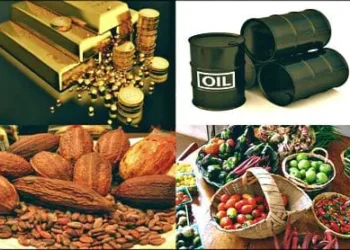Ghana, the first sub-Saharan country to have gained independence from the British, is now grappling with a dual crisis, as an intermittent power shortage and widespread disruptions in internet connectivity have cast shadows over the country.
Urban settlers, in particular, are bearing the brunt of these adversities, amplifying the urgency for swift government intervention.
While the Electricity Company of Ghana, the body mandated for power distribution in the country has attributed the recent power crisis to the maintenance of its transformers, experts are of the view that at the core of Ghana’s power dilemma lies a delicate balance between demand and supply.
This yawning gap between demand and supply has given rise to frequent blackouts, leaving both urban centers and rural communities in the dark in recent times.
According to data released by the Member of Parliament for Bongo Constituency, Edward Bawah, the Electricity Company of Ghana’s peak load on March 18 stood at 3485MW, with the national peak load reaching 3618MW.
Mr Bawah noted that during off-peak periods, the Electricity Company of Ghana manages 300MW, while during peak periods, the load management will involve shedding 200MW.
The Bongo Legislator further stated that the decision by the power distribution company to shed load underscores the challenges faced in balancing electricity supply and demand, particularly during peak hours.
He stressed that despite exports to neighboring countries, the domestic demand remains high, prompting the need for load management strategies.
Commenting on the worrying development, Benjamin Boakye, the Executive Director of the African Centre for Energy Policy, posited that the recent power crisis in the country could get worse if the government fails to address the underlying problem.
Mr. Boakye noted that the shortfall in the supply of gas for the various power plants in the country has still not been fixed, accusing political leaders in the country of controlling the procurement of gas for the thermal plants and siphoning the resources that could help keep the power on.
“If the government buys fuel today, we can have the power running, we can have the lights on. But it is not sustainable for the government to be doing that. It is not sustainable for us to sacrifice the budget to be paying for the fuel. Even if we were going to give the fuel to ECG and they guaranteed that they would sell the power and recover the money, it wouldn’t be a problem”.
Benjamin Boakye
Ghana Reeling From Internet Disruption In Mobile And Fixed Data
In tandem with the power crisis, Ghana is reeling from disruptions in mobile and fixed data services, stemming from the unfortunate rupture of multiple underwater cables in Senegal, Cote d’Ivoire, and Portugal.
The Ghana Chamber of Telecommunications, in a statement, stated that some of the cables are down while others are delivering limited capacity, a development, which is severely impacting the internet, data, and Voice Over IP services of the mobile network operators and data service providers to varying degrees in the country.
While the various Mobile Network Operators in the country are keen on restoring full data services, the National Communications Authority, the statutory body mandated to license and regulate electronic communications services in the country says full restoration would take approximately five weeks.
The two worrying developments without doubt are significantly affecting a huge part of the country’s population, particularly urban settlers, exacerbating existing challenges and impeding socio-economic progress.
A large majority of urban settlers, who are already grappling with the repercussions of the extreme economic hardship, now find themselves navigating through the darkness of power outages and the void of internet disruptions.
While businesses are severely hampered, due to the combined effect of the two crises, students are equally struggling to access online education, with essential services being compromised.
In light of these pressing challenges, there is an urgent need for government’s intervention. Ghana cannot afford to languish in darkness and digital isolation.
Immediate steps must be taken to address the underlying issues plaguing the power sector, including ensuring a reliable supply of gas for power generation.
Additionally, concerted efforts are needed to expedite the restoration of internet connectivity, bridging the digital divide and restoring normalcy to urban life.
READ ALSO: All African Games: NDC Chastises Government Over South Africa’s Withdrawals























